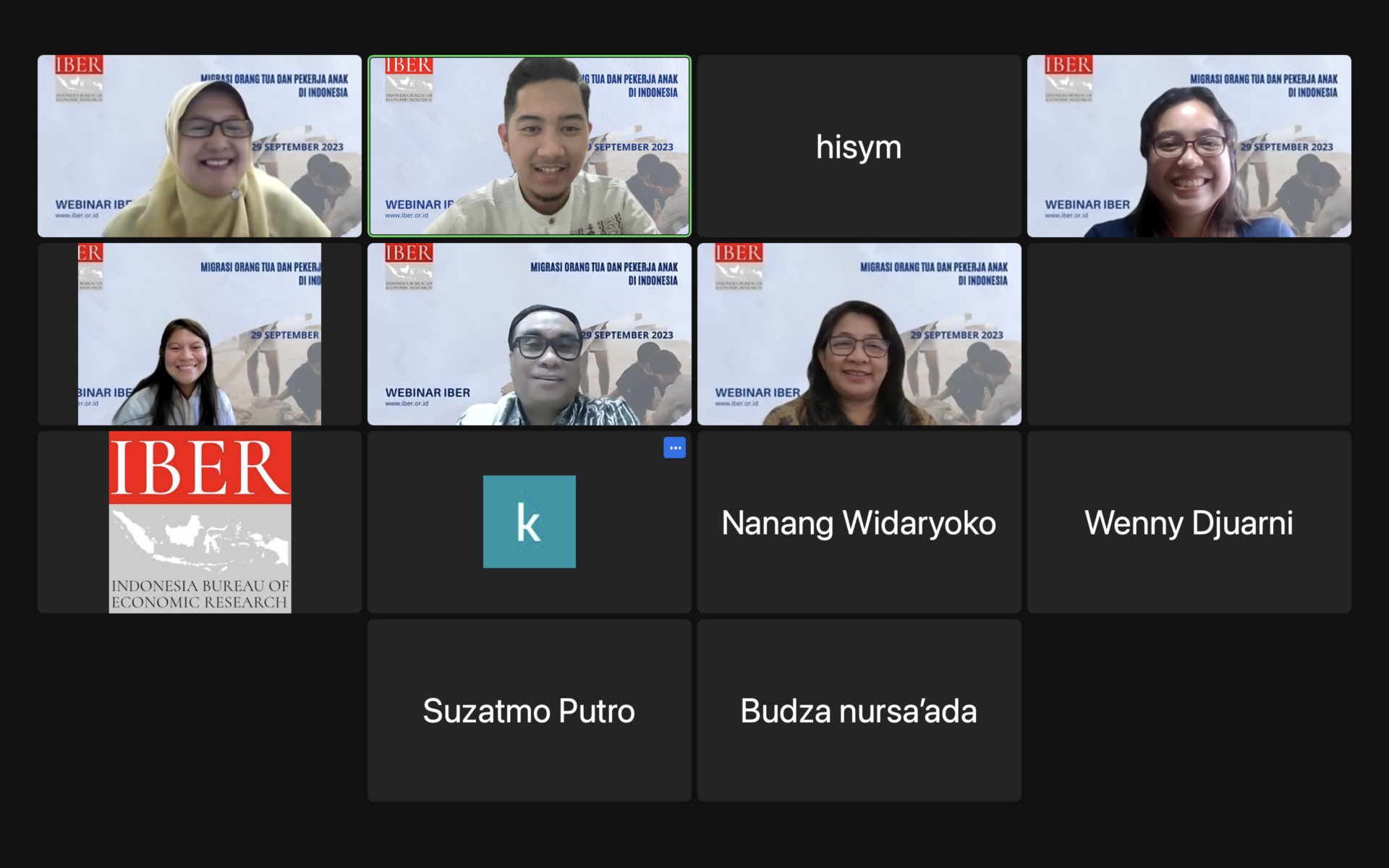Child labor is one of the ongoing social issues in Indonesia. The high number of child laborers needs to be thoroughly examined to understand why they enter the job market before the working age.
Indonesia Bureau of Economic Research conducted Webinar on this issue (September 29, 2023), presenting Dr. Yulia Anas from FEB Universitas Andalas as speaker, and Elda Pardede as discussant. The Webinar is chaired by Dr. Mursalim Nohong from Universitas Hasanudin.
Dr. Yulia found that Parental migration has a positive influence on the likelihood of children becoming child laborers. Children whose mothers or both parents migrate have a greater chance of becoming child migrant workers compared to children whose fathers migrate. The likelihood of boys becoming child laborers is smaller when compared to girls. The length of a child’s schooling, school dropouts, and living in urban areas also increase the likelihood of a child becoming a child laborer.
On the other hand, the father’s age and education negatively impact the likelihood of a child becoming a child laborer, meaning that as the father’s age and education level increase, the chances of the child becoming a child laborer decrease. Conversely, a working mother and a higher number of household members have a positive impact on the likelihood of a child becoming a child laborer. A working mother is presumed to be helping meet the family’s needs and may even play a role as the head of the household, thus increasing the chances of a child becoming a child laborer, especially when accompanied by a larger household size.
On these findings, Ms. Elda Pardede suggested capturing the difference between child work and child labor. The activites of child work do not affect child’s health & personal development or interfere with their schooling, generally regarded as being positive as they may contribute to children’s skill development, and to the welfare of their families. Meanwhile. child labor captures forms of work that deprive children of their childhood, their potential and that is harmful to physical and mental development. It is mentally, physically, socially or morally dangerous and harmful to children; and/oror interferes with their schooling.
Further research is necessary, incorporating remittance variables, to explore the equilibrium in the well-being achievement of migrant children in terms of education, health, and employment, as nearly 70 percent of migrant children are left behind by their migrating parents.
The session is recorded and published on IBER Youtube Channel. You can access through this link
All materials are also open to the public and can be downloaded here.


manfaat